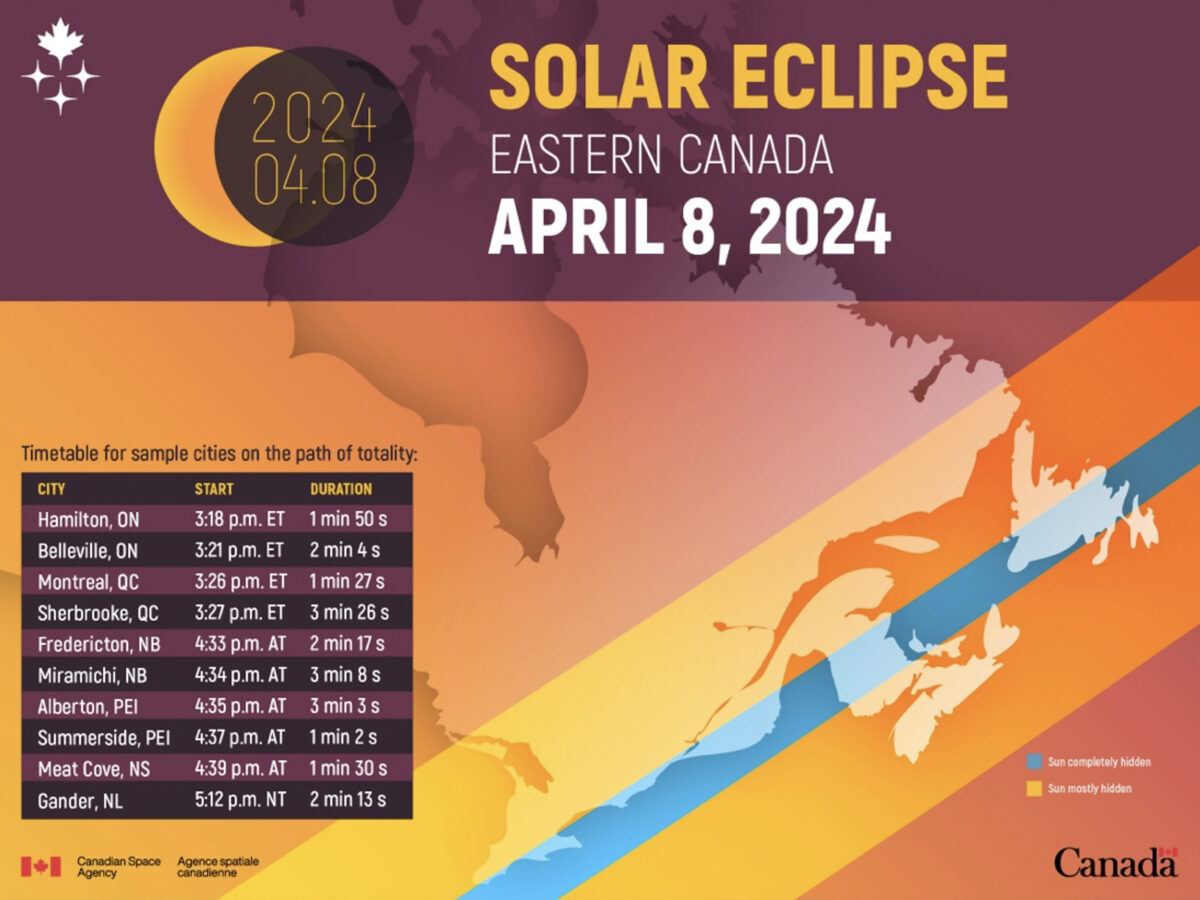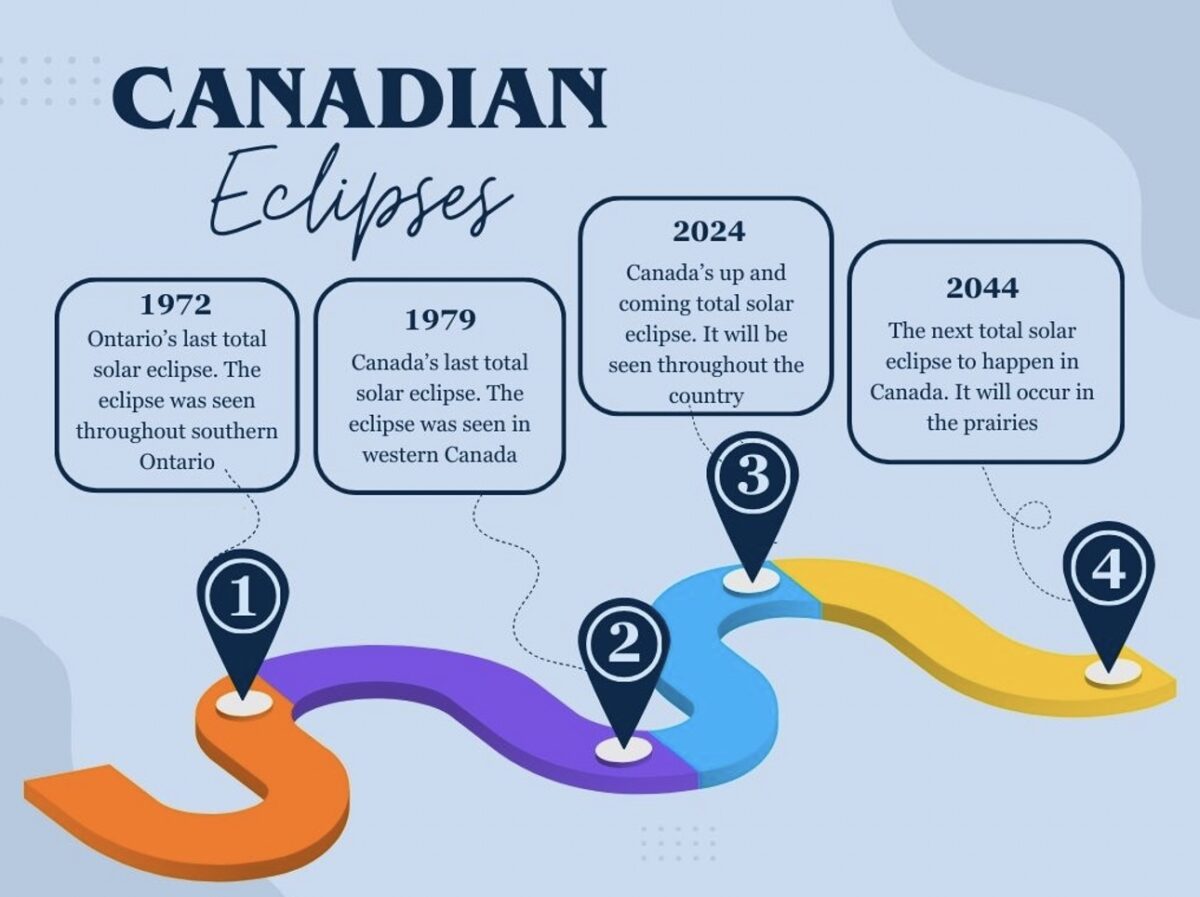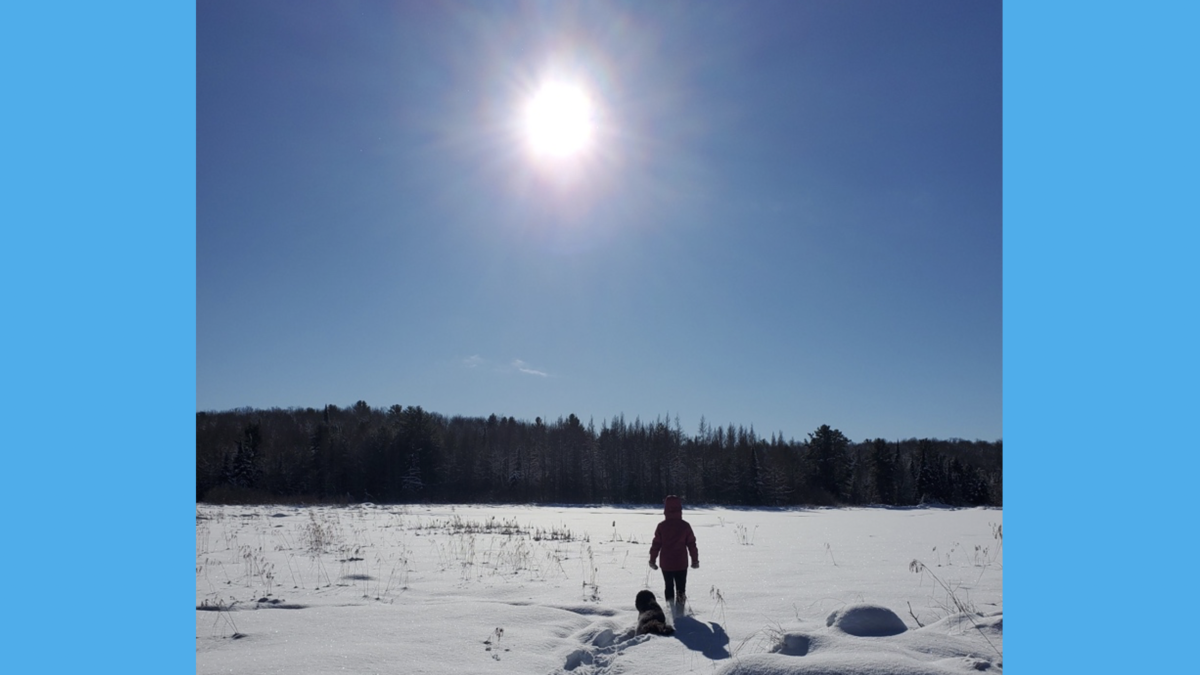As Ontario’s first total solar eclipse in over 40 years looms, school boards across the province are cancelling classes or debating whether to do so on the day of the solar phenomenon, a cautious measure to protect the safety of students from potential eye damage.
An eclipse occurs when the moon is positioned perfectly between the Earth and the sun, temporarily blocking some or all of the sunlight reaching our planet. The upcoming alignment will create a total eclipse in some parts of the province and a partial eclipse in others, and is due to occur on Monday, April 8 between 12 noon and 4 p.m.
Debates about how to handle the event unfolded over several weeks in Ottawa, with the largest school board, the Ottawa-Carleton District School Board, announcing a planned school closure on the day of the eclipse. Other school boards in the region, including the French- and English-language Catholic boards, also decided to shift a scheduled teachers’ professional development day from late April to April 8 to ensure students will be under parental care during the eclipse.

Other school boards throughout Ontario have been debating similar decisions, with trustees from Timmins to Hamilton holding consultations to discuss whether they should follow suit.
The Lindsay, Ont.-based Trillium Lakelands District School Board was one of the first in Ontario to declare April 8 would be a professional development day for teachers and students would stay home.
Jennifer McCreary, vice-principal at a TLDSB high school, said she agrees with her board’s decision.
“They were worried about the safety of the children and especially teens, since there’s a chance that they might not know the consequences of looking directly at the sun without any protection.”
McCreary said that she and other senior school staff were concerned about the eclipse occurring during recess and class dismissal, as students wanting to look at the sun would complicate the established routine set out by the board.
‘They were worried about the safety of the children and especially teens, since there’s a chance that they might not know the consequences of looking directly at the sun without any protection.’
— Jennifer McCreary, vice-principal, Trillium Lakelands District School Board
While she said that some science teachers were disappointed they wouldn’t be able to host classes during the eclipse, McCreary said that hasn’t stopped the eclipse from becoming a learning opportunity for students.
“One of our most prominent science teachers at my school has organized a field trip for senior students to go view the eclipse with professional equipment, and the announcement of a PD day won’t stop field trips like this from occurring.”
As to what other school boards should do, McCreary said it’s not for her to judge the decisions of other jurisdictions.

“In the end, it’s up to each individual school board to make independent decisions that are in the best interests of their students and staff,” she said. “It depends on how their areas will be affected by the eclipse, and I’m sure they’ll make a safe judgment based on good grounds.”
McCreary ‘s thoughts were echoed by physicist and self-described “eclipse chaser” Jean-François Guay, a member of the society of astronomy at the Montreal Planetarium. As an astronomer who’s travelled all over the world to view eclipses, he said it’s important for children and adults alike to view the eclipse safely.
“Children must wear protective eyeglasses if they want to observe the progression of the eclipse before and after totality, otherwise there are severe dangers to health,” he said. “However, it should be understood that everyone can take their glasses off when totality is reached, as it will be completely dark and streetlights will come on.”
Guay stressed that the eclipse should be a learning opportunity for students of all ages and that they should receive instructions from school boards on how to safely view the eclipse. “The eclipse is an exciting event that everyone should enjoy, so it’s important that children learn about the phenomenon properly.”
In its message about school closures, the OCDSB stated: “Ottawa, located in the Northern Region, will experience a partial solar eclipse. During a total or partial solar eclipse, it is not safe to look directly at the sun without appropriate protective eye wear. Doing so may result in permanent eye damage.”
‘Children must wear protective eyeglasses if they want to observe the progression of the eclipse before and after totality, otherwise there are severe dangers to health.’
— Jean-François Guay, astronomy society member, Montreal Planetarium
Noting that the height of the eclipse will occur at 3:25 p.m. — in the midst of most school dismissal times — the board stated that, “after exploring several options and consulting with key stakeholders, a local operational decision has been made to close all OCDSB schools on April 8th. Transportation will also be cancelled.”
While professionals continue assessing what to do before this rare event occurs, others, such as Muskoka resident Ian Mackenzie, fondly remember Ontario’s last total solar eclipse in 1972.
“I was in Grade 6 when it happened, and I remember that kids were looking through cereal boxes and welding helmets to see the eclipse.”
He said that the concern surrounding the upcoming eclipse is unnecessary.
“It’s getting way overblown and it’s taking the fun out of it,” he said. “Children will be able to see the eclipse at home, so it not much of a difference being at school.”
Canada’s next total solar eclipse will occur in 2044.




